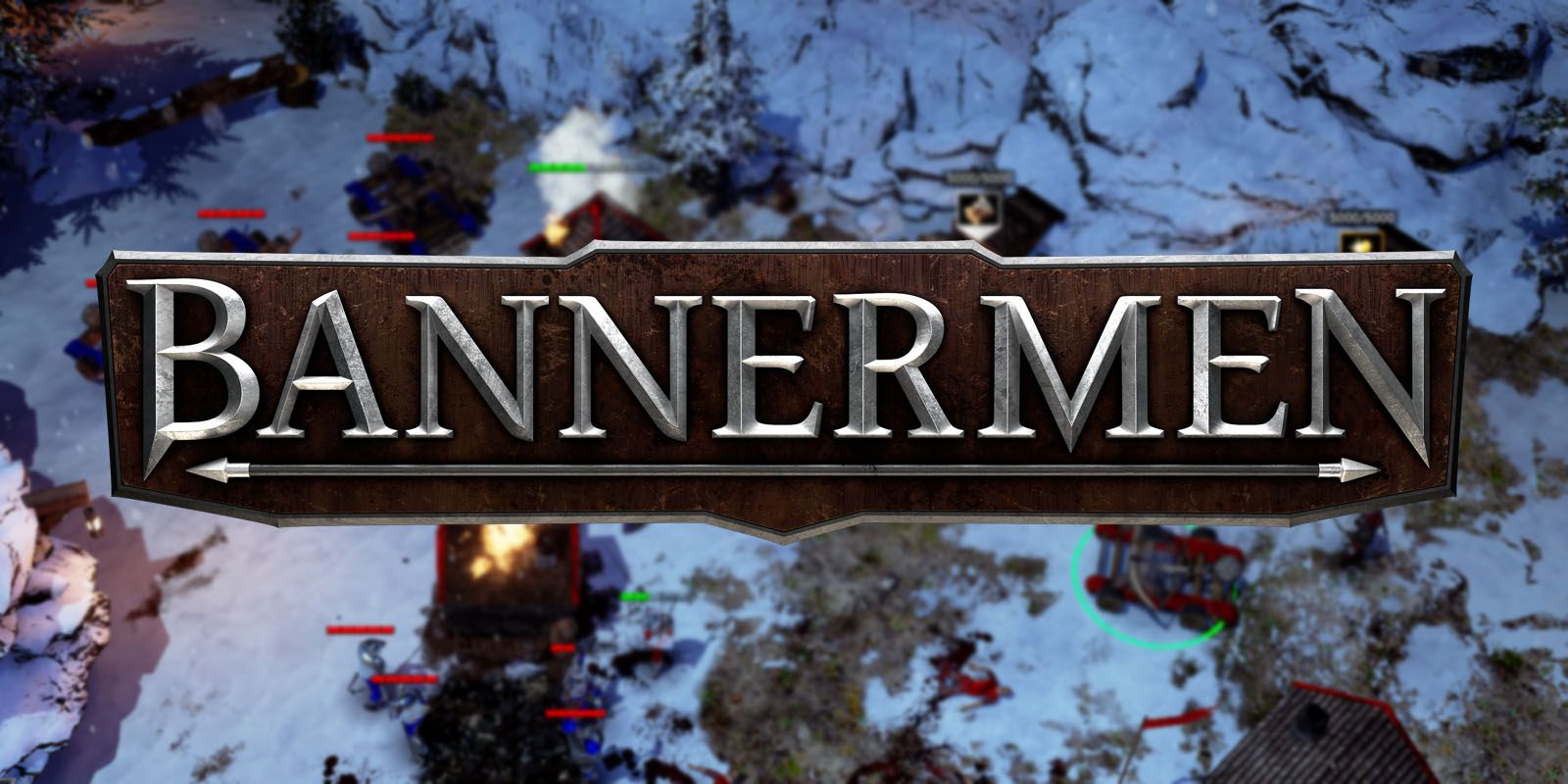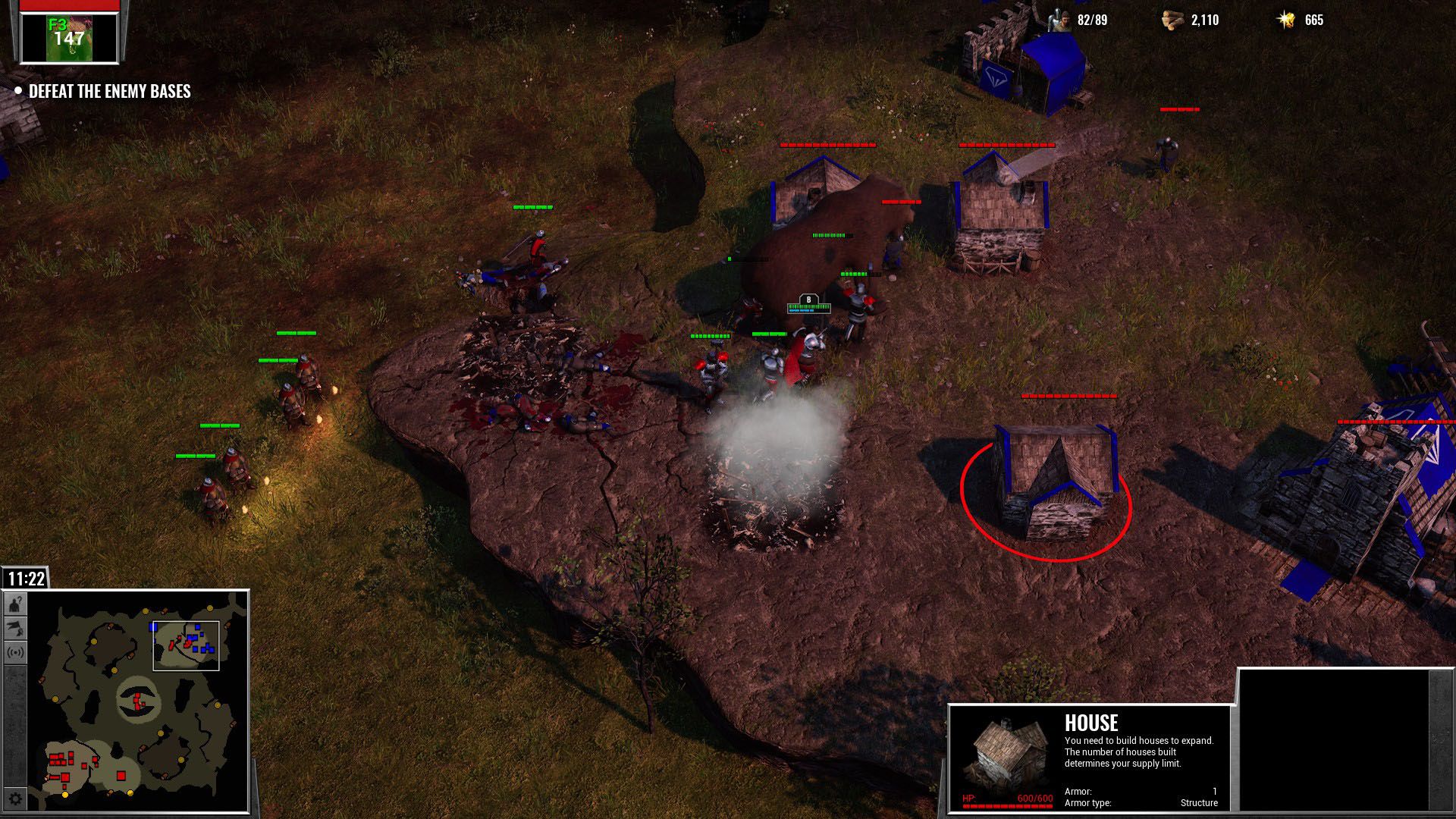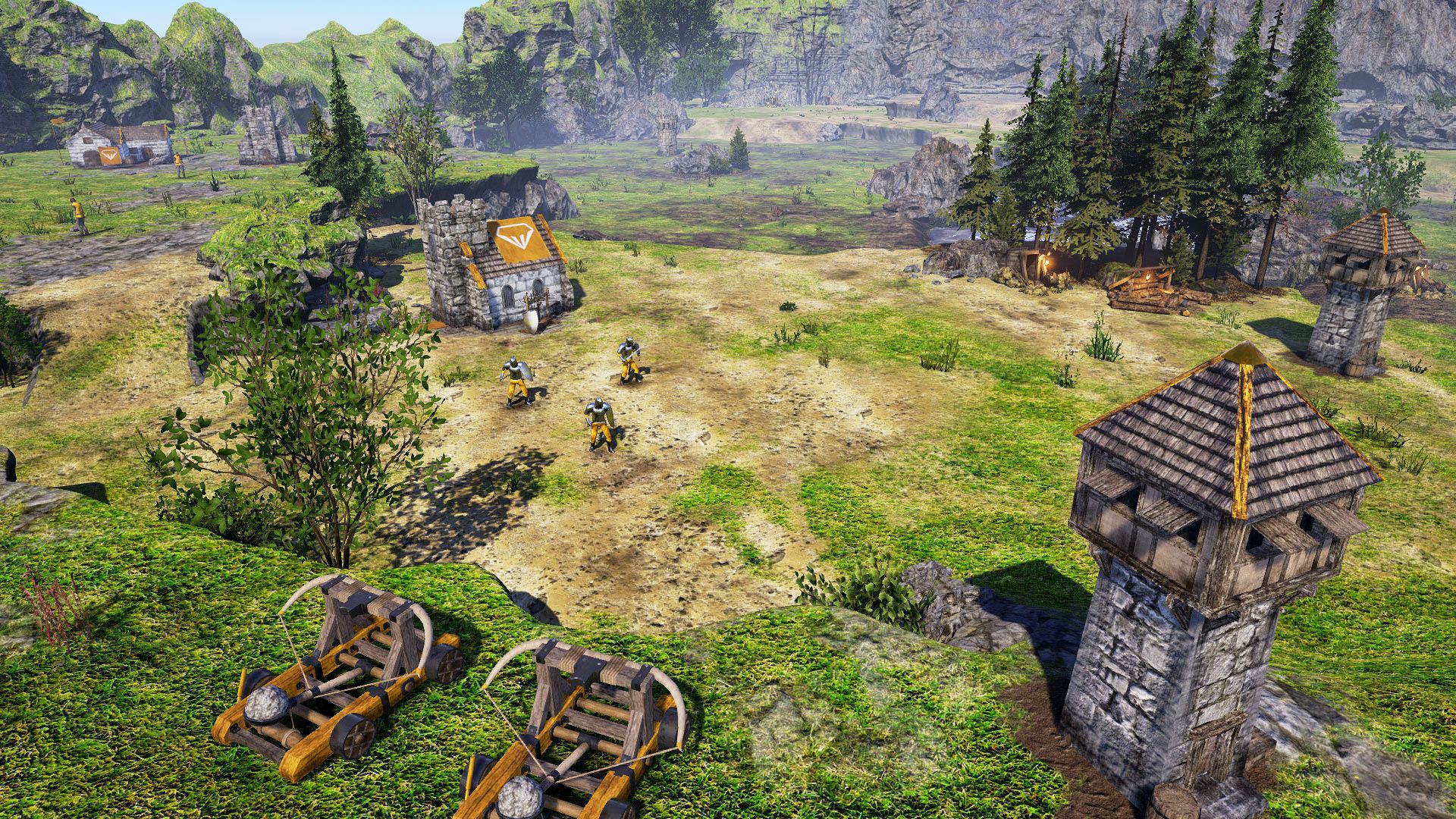Pathos Interactive is hoping make its mark on the RTS market with Bannermen, a medieval strategy title that hits all the classic notes: resource gathering, army production, and hero units that can change the tide of a battle. Unfortunately, it turns out Bannermen is a fittingly generic name for a title that lacks its own identity. The game feels like it borrows bits and pieces aplenty from other successful RTS games, but it makes no daring moves to stand out on its own. The result is an overly-simplified RTS title that is enjoyable at times, but lacks the strategic depth to compete with well-known alternatives already on the market.
The premise of Bannermen is built off of a successful tried-and-true RTS formula: players must gather resources, build up an army, and outwit their opponents on the battlefield. Powerful hero units play a large role in how these battles pan out, but beyond this the game fails to put forth much strategic depth. There's only one faction in Bannermen, so players will always be stacked against an enemy with the same units and tech tree as themselves. Fighting the same units in perpetuity grows stale quickly, especially since the game doesn't have any additional layers like veteran units or team-specific special unit options.
Related: Read Screen Rant's 8-Bit Armies Review
In Bannermen, even the resources betray this lack of depth. Wood and gold are the only two resources to collect and are used to produce all of the units, buildings, and upgrades the game has to offer. A fairly simple tech tree goes through the standard medieval must-haves: footmen, archers, catapults, and knights fill most of the roster. Hero units that have special attacks and can be leveled up by being in combat add a much-needed breath of fresh air into the mix. Unfortunately, there's only three of them, and for most of the campaign players essentially just control one of them.
The campaign offers a variety of skirmishes - and a good number of them - to the player. Over the course of some 23-odd levels, players will fight across recycled multiplayer maps, custom-built scenarios, and short hero-only raid missions. This mixture of missions keeps the campaign from getting too repetitive or stale, though the pacing can feel odd at times with some missions taking a matter of minutes, while other battles ending up longer and drawn out. It can also be odd fighting a sole enemy on a map that was clearly meant for eight players, making for some empty-feeling worlds.
The storyline is a simple one: the player has lost a battle that was not dissimilar to The War of The Last Alliance from Lord of the Rings, with the evil Lord Karthor taking a strong foothold in the realm as a result. Over the course of the campaign, the player rebuilds an army and organizes a new push to fight back against Lord Karthor. There will be no dramatic twists or intricate plots here - all of the characters are caricatures of medieval personas, but at least the storyline progression provides a change of scenery as the player troops across woodlands, desert, and ashen rock environments. It's generic Lord of the Rings meets Age of Empires, but without any standout moments of its own.
One bright note for Bannermen is the inclusion of holy spots on each skirmish map. Building temples on these locations will allow the player to summon nature powers, which are highly destructive area-of-effect events (or a giant bear unit, which gives a wow factor the rest of the game is sorely missing). Much like wonders in Age of Empires, building a temple on this spot sends a notification to all of the other players, so one must be ready to defend the location as the nature power goes through its cooldown. It's a fun touch, and its risk-versus-reward nature is one of the rare times Bannermen offers some depth to its gameplay.
At launch the game has creeping technical issues that take away from the experience. There was more than one occasion that a campaign mission had to be repeated because the game glitched out and didn't trigger an end after the victory conditions, and cutscenes sometimes had audio stuttering issues. The units do a somewhat decent job of pathfinding on the battlefield, but sometimes get severely confused. Archers need meticulous micromanagement, as they often forget to attack nearby enemy buildings after destroying their initial target. The biggest annoyance is the audio warning for a player's army being under attack, which often keeps repeating non-stop during prolonged skirmishes. It's a clear design oversight, and an indication that the developers haven't yet had time to fine-tune the title.
At the end of the day, Bannermen's biggest fumble is its lack of diversity: if Lord Karthor's forces had been orcs or had something to differentiate themselves, there'd be some nice variety to combat. Instead, players will be fighting against an enemy using the same tech tree and the same units throughout both the campaign and skirmish matches. This limits the tactical flexibility of the title, resulting in a fairly simple experience. This hurts the longevity of the title, and it means gameplay tends to grow stale fairly quickly.
Bannermen still has enjoyable moments of gameplay as armies clash together, but it fails to make its mark on the traditional RTS formula with any tweaks or significant depth. Given that the game retails at a $27 price point, RTS enthusiasts will likely still have a good - albeit likely brief - time with the title. For everyone else, it's hard to justify purchasing Bannermen when classics like Command and Conquer or Age of Empires that achieve much higher notes, depth, and polish.
Next: ACHTUNG! Cthulu Tactics Review
Bannermen is available now on PC. Screen Rant was provided with a Steam code for this review.



